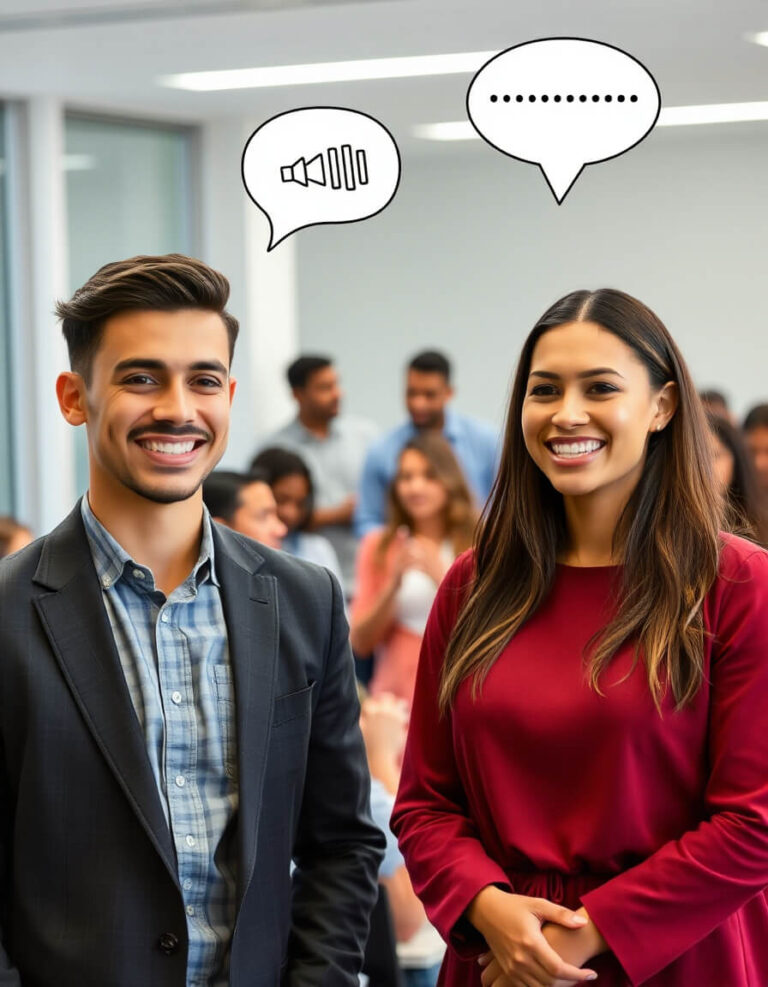Developing Active Listening Skills: The Ultimate Guide to Becoming a Better Communicator
Introduction
Have you ever had a conversation where you felt truly heard? Like the other person wasn’t just nodding but actually paying attention to every word you said? That’s the power of active listening.
At Learn Sufficient Notes, we believe that mastering active listening is one of the most valuable skills you can develop—not just for better communication, but for building trust, improving relationships, and becoming a strong, thoughtful individual.
In this article, you’ll learn everything about developing active listening skills in a simple and highly practical way. We’ll cover its definition, importance, benefits, steps, examples, and tips, all in an engaging manner and within a strict word count of 3000–3500 words.
What Is Active Listening?
Active listening is a communication skill where you fully concentrate, understand, respond, and remember what the other person is saying. Unlike passive listening—where you hear but don’t absorb—active listening involves full mental presence.
Key Components of Active Listening
- Giving full attention to the speaker
- Avoiding interruptions
- Showing understanding through body language and feedback
- Asking thoughtful questions
- Responding appropriately
Why Is Active Listening Important?
In today’s fast-paced world, real listening has become rare. Most people listen to reply, not to understand. But active listening is crucial for:
- Stronger relationships
- Better leadership
- Improved learning
- Conflict resolution
- Mental clarity and empathy
Whether you’re a student, teacher, manager, or parent, mastering this skill can transform your interactions and influence.
At Learn Sufficient Notes, we often say: “Good listeners make great leaders.” Why? Because they understand before acting.
Benefits of Active Listening
1. Builds Trust and Respect
When people feel heard, they open up more.
2. Improves Clarity and Understanding
Reduces misunderstandings in personal and professional settings.
3. Boosts Learning
Students who actively listen retain more.
4. Strengthens Relationships
It shows that you care.
5. Enhances Problem-Solving
You catch details others might miss.
Barriers to Active Listening
1. Distractions
Phones, noise, or multitasking.
2. Prejudgment
Assuming what the other person is going to say.
3. Emotional Reactions
Getting defensive or angry.
4. Lack of Interest
Not being genuinely interested.
5. Poor Body Language
Looking away or appearing distracted.
Pro Tip from Learn Sufficient Notes: Clear your mind and put distractions away. Listening starts with intention.
How to Develop Active Listening Skills (Step-by-Step)
1. Pay Full Attention
- Look at the speaker.
- Nod occasionally to show engagement.
2. Avoid Interrupting
- Let the speaker complete their thought.
- Don’t jump to conclusions.
3. Show That You’re Listening
- Use verbal affirmations: “I see”, “Go on”, “That makes sense.”
- Use facial expressions and posture to show interest.
4. Provide Feedback
- Paraphrase what they said: “So you’re saying that…”
- Reflect feelings: “You seem really excited about this.”
5. Ask Clarifying Questions
- “What happened next?”
- “How did that make you feel?”
6. Respond Thoughtfully
- Only respond after the person is done speaking.
- Offer your thoughts or solutions with empathy.
7. Practice Mindfulness
- Be aware of your inner thoughts.
- Bring your focus back when your mind wanders.
Practical Exercises to Build Active Listening
1. The Mirror Technique
Pair up with someone. One speaks for 2 minutes, the other repeats back what they heard. Switch roles.
2. The Five-Second Pause
Before replying in a conversation, pause for 5 seconds. This ensures thoughtful responses.
3. Audio Reflection Practice
Listen to a podcast and write down what the speaker meant—not just what they said.
4. Eye Contact Drill
Practice maintaining comfortable eye contact during conversations.
5. Distraction-Free Listening
Have a 5-minute conversation where you keep your phone in another room.
Real-Life Examples of Great Listeners
Mahatma Gandhi
Listened deeply to the people, which helped him understand what the nation needed.
Oprah Winfrey
Known for her ability to connect deeply with guests by listening with empathy.
Teachers and Counselors
The best ones listen more than they talk, and that builds connection.
At Learn Sufficient Notes, we encourage students to listen actively not just in class, but in life.
Active Listening in Different Life Situations
At Home
Build better relationships with family by listening without judging.
In School or College
Take better notes and understand concepts faster by truly listening to lectures.
At Work
Solve problems, manage teams, and lead better.
In Friendships
Avoid unnecessary fights and build deeper bonds.
In Online Communication
Even in chats and Zoom calls, read carefully, ask, and confirm.
Tips to Stay Focused While Listening
- Keep your phone on silent.
- Make eye contact.
- Avoid thinking of what to say next.
- Breathe deeply to stay calm.
- Repeat key words mentally.
Bonus Tip from Learn Sufficient Notes: Treat every conversation like a classroom. What can you learn from this person?
Common Myths About Active Listening
Myth 1: “Listening is just being quiet.”
Truth: It’s about engagement and feedback.
Myth 2: “I’m born with bad listening skills.”
Truth: It’s a learnable skill.
Myth 3: “I listen better when I multitask.”
Truth: Divided attention lowers understanding.
How to Measure Your Listening Progress
- Start a Listening Journal: Track conversations where you applied active listening.
- Ask for Feedback: After discussions, ask “Did I understand you correctly?”
- Self-Reflection: Write down moments you felt distracted and why.
Tools & Resources to Improve Listening
| Tool | Purpose |
|---|---|
| Podcasts | Improve attention span |
| Audiobooks | Train your ear to focus |
| Meditation Apps | Increase mindfulness |
| Listening Games | Sharpen memory & response |
| Learn Sufficient Notes Blog | Free growth tips and real-life guides |
How Parents and Teachers Can Encourage Active Listening
- Ask open-ended questions: “What did you enjoy today?”
- Praise good listening moments.
- Be a role model by listening to kids/students first.
- Create fun activities like “story repeat” games.
At Learn Sufficient Notes, we believe early practice builds a lifetime habit.
Final Thoughts: Listening Is a Superpower
In a world full of noise, be the one who truly hears. Active listening isn’t just a skill—it’s a way to connect, grow, and lead.
Remember, it’s not about hearing everything. It’s about understanding what really matters.
So, are you ready to unlock this superpower?
Keep practicing, and don’t forget to visit Learn Sufficient Notes for more real-world life skills, personal development guides, and educational wisdom.
FAQs
Q1: Is active listening the same as hearing?
A: No, hearing is passive. Listening is active and involves understanding.
Q2: Can I improve my listening even if I’m distracted easily?
A: Yes! With consistent practice and mindfulness, anyone can improve.
Q3: Does active listening help in exams and interviews?
A: Absolutely! It improves memory, understanding, and response time.
Q4: Can active listening improve relationships?
A: Definitely. People feel more valued when they are truly heard.
Q5: What’s the quickest way to improve listening?
A: Start by removing distractions and paying full attention.
Q6: Can I teach kids to be better listeners?
A: Yes, start with simple games and model active listening yourself.
Q7: Does body language matter in listening?
A: Yes, it helps show interest and encourages the speaker.
Q8: How long does it take to master active listening?
A: It depends on your practice, but small changes show results quickly.
Stay connected with Learn Sufficient Notes
For more powerful learning tips and life-changing articles, bookmark https://sufficientnotes.com today. We’re here to help you grow every step of the way.






